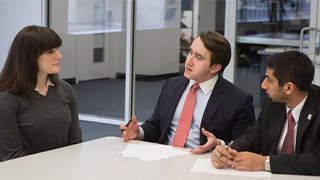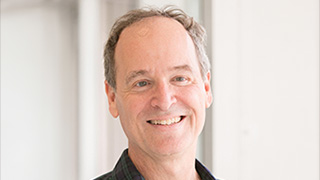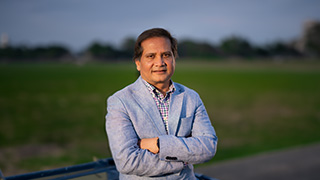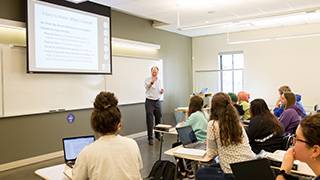Digital Humanities Student Highlights Community Gardens - Seton Hall University
Monday, January 23, 2023

Amalia McEvoy, a graduate student in Dr. Mary Balkun's Introduction to Digital Humanities class, spent the fall 2022 semester researching community gardens in Newark and developed a website to present her findings. Throughout the semester, McEvoy spoke with community garden volunteers, nonprofit leaders, and city officials to understand the functionality of community gardens, the policies that led to their creation, and their role in addressing the inequalities stemming from environmental racism.
McEvoy collaborated with PolicyLab – an entity within Seton Hall’s Center for Community Research and Engagement – and utilized its subject matter expertise and connections with Newark-based community leaders to collect information on two unique gardens, one in the City’s West Ward and another in the South Ward. To obtain an understanding of the policies responsible for encouraging community gardening, McEvoy interviewed members of Newark’s Office of Sustainability, underscoring the value of working alongside local government. After collecting her information, McEvoy leveraged the resources available through the University’s Teaching, Learning, and Technology Center to build a website capable of showcasing her research in a professional, accessible, and user-friendly format. As McEvoy observed, the digital nature of the project means “we’re bringing information about policy and community to a larger audience, while not overshadowing the groups that work to make the gardens what they are. The site also meets accessibility standards, so anyone can use the information.”
Green Power tells a story that is foreign to many of us, even though the consequences of environmental racism exist in our own backyard. Tackling inequality requires technological prowess, creativity, and collaboration. Although the first phase of this project is complete, our work is not done. We remain committed to updating this website regularly to keep our viewers informed of the latest trends and changes, while continually engaging with our community partners as we continue the fight for a fair and just society.
For more information about the Center for Community Research and Engagement’s PolicyLab,
contact Timothy Hoffman:
(973) 761-9683, timothy.hoffman@shu.edu
For more information about Digital Humanities, contact Dr. Mary Balkun: (973) 761-5103, mary.balkun@shu.edu
Categories: Education, Research





